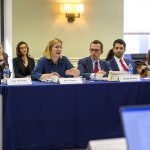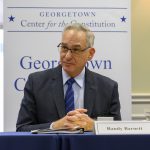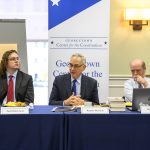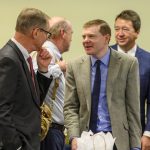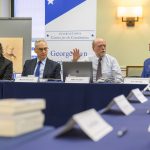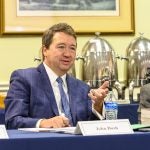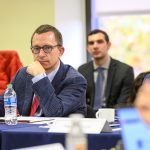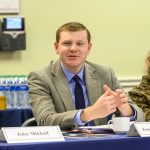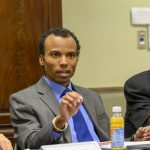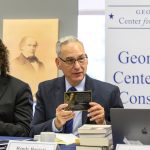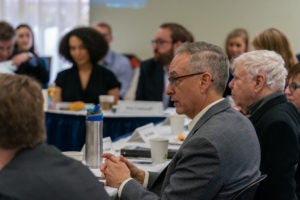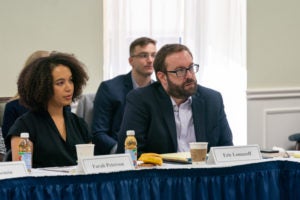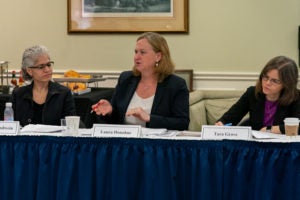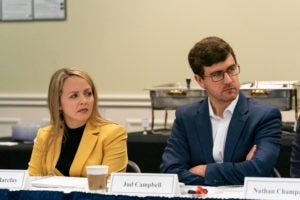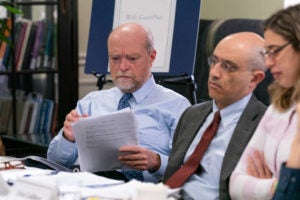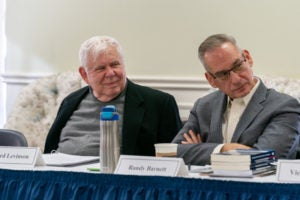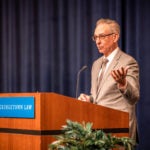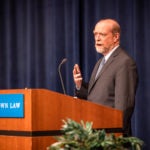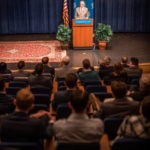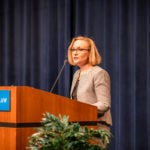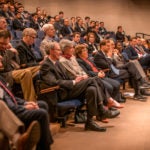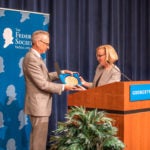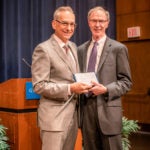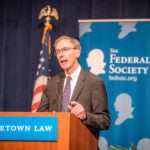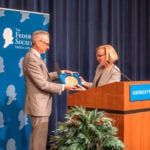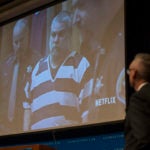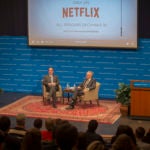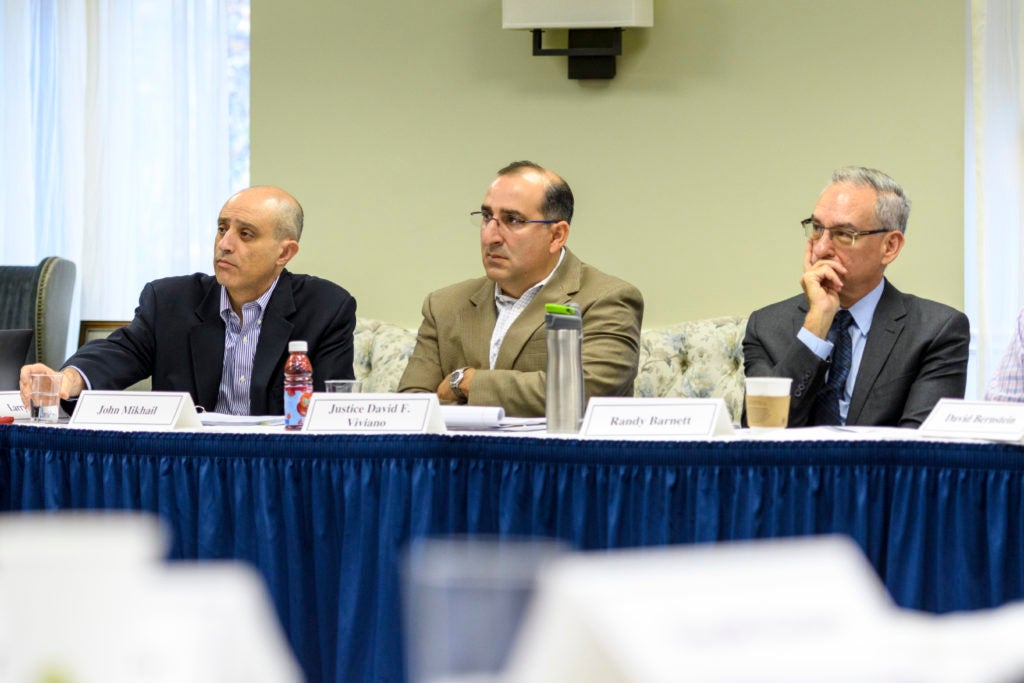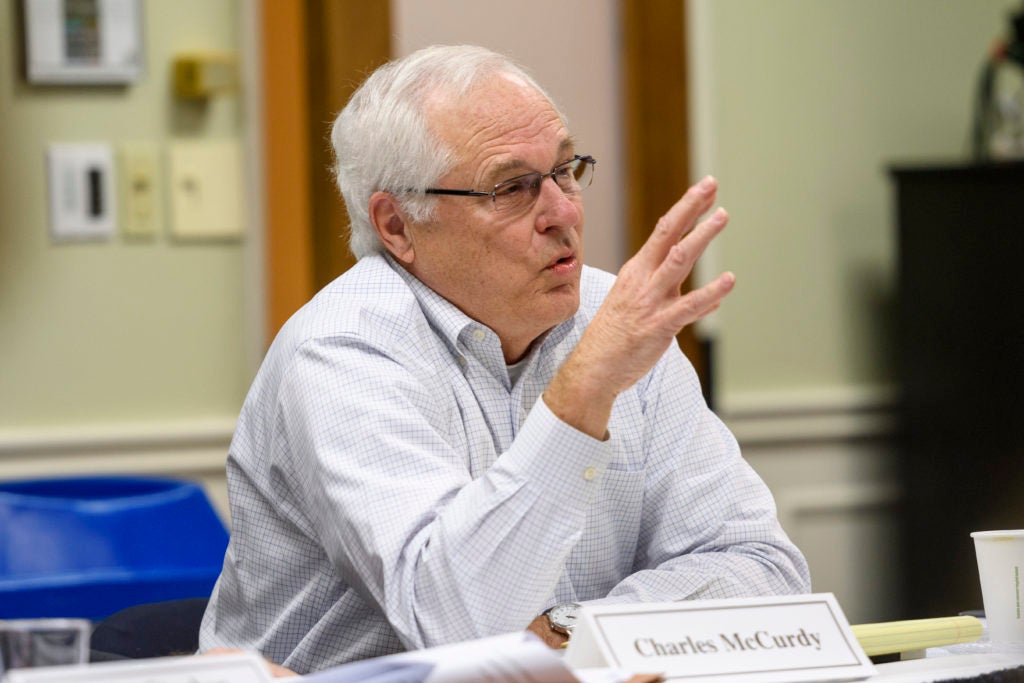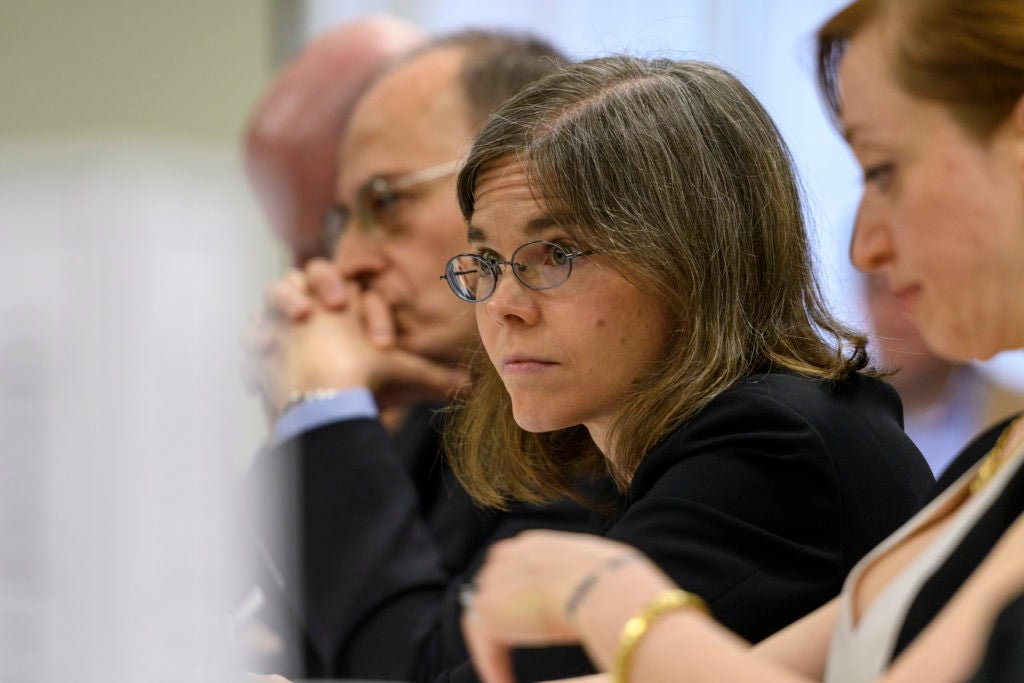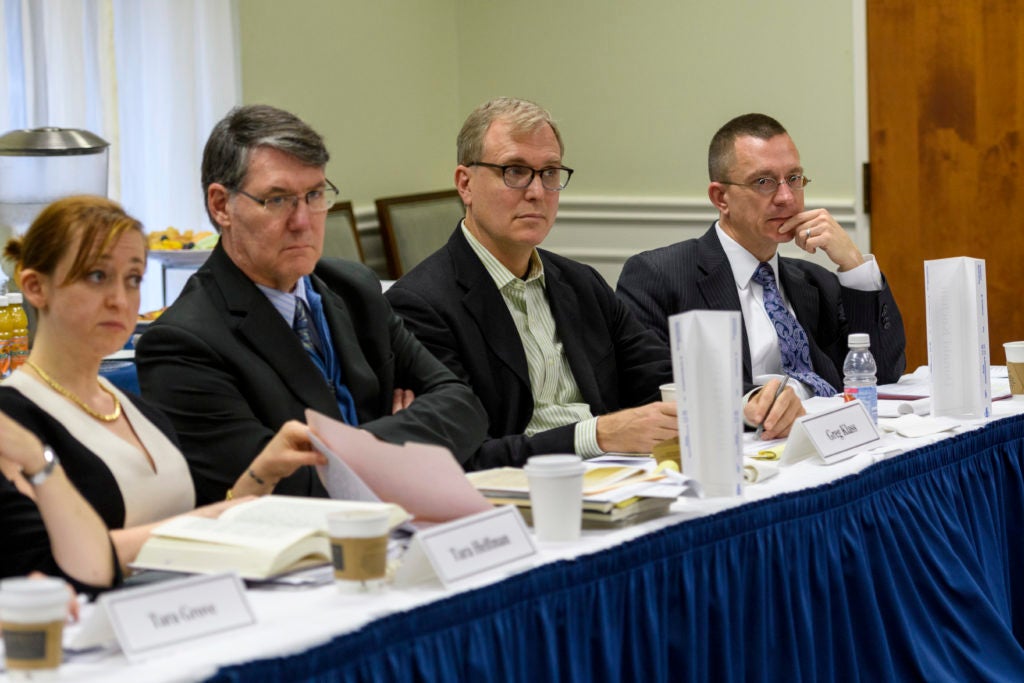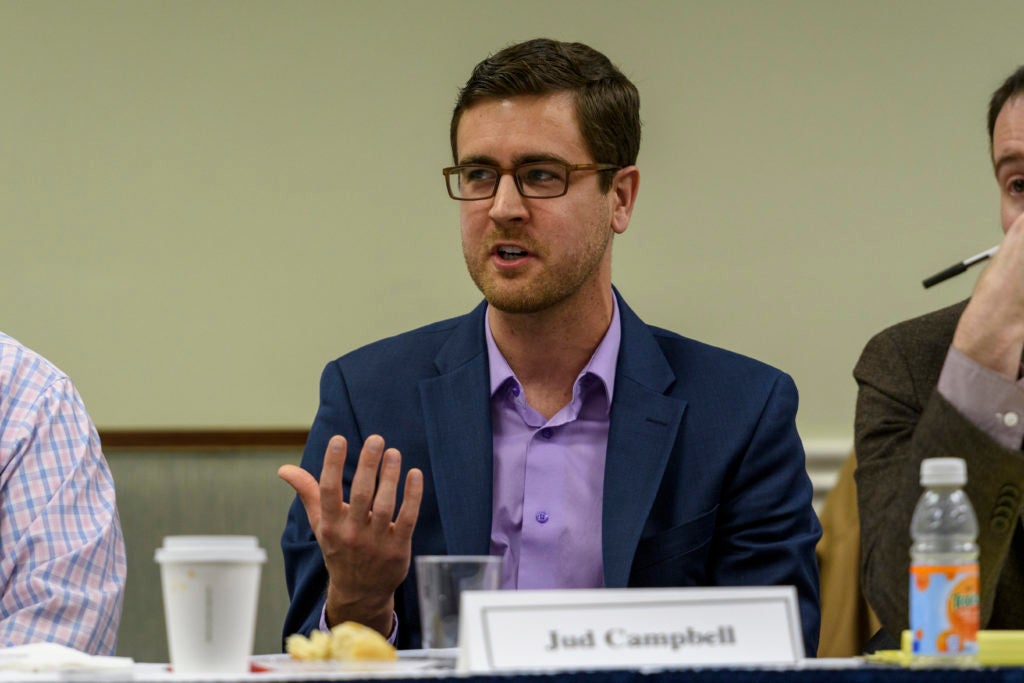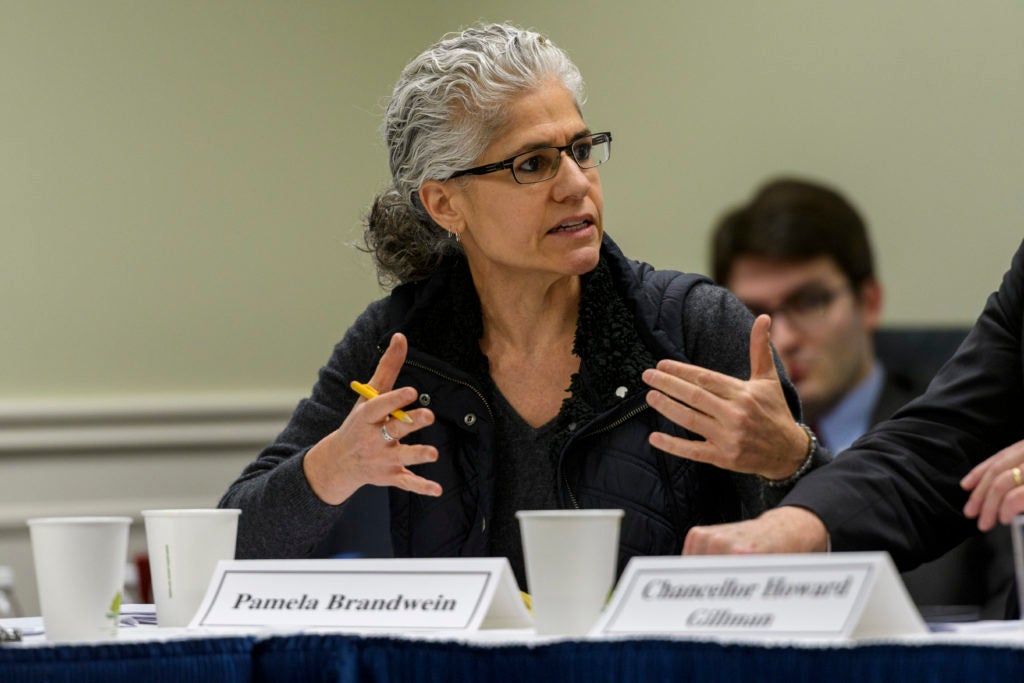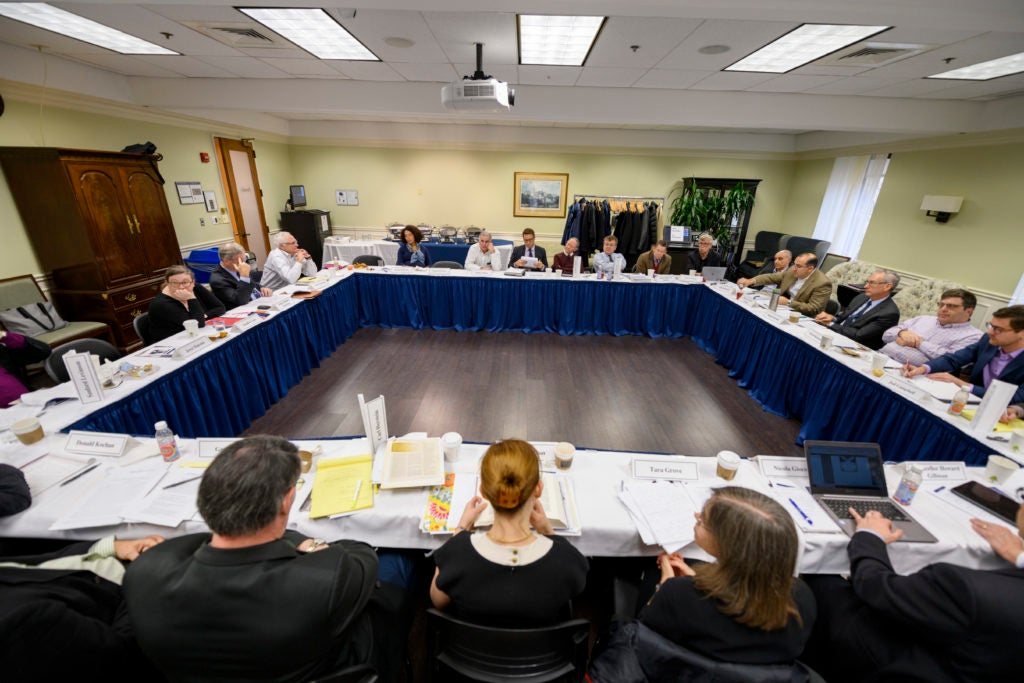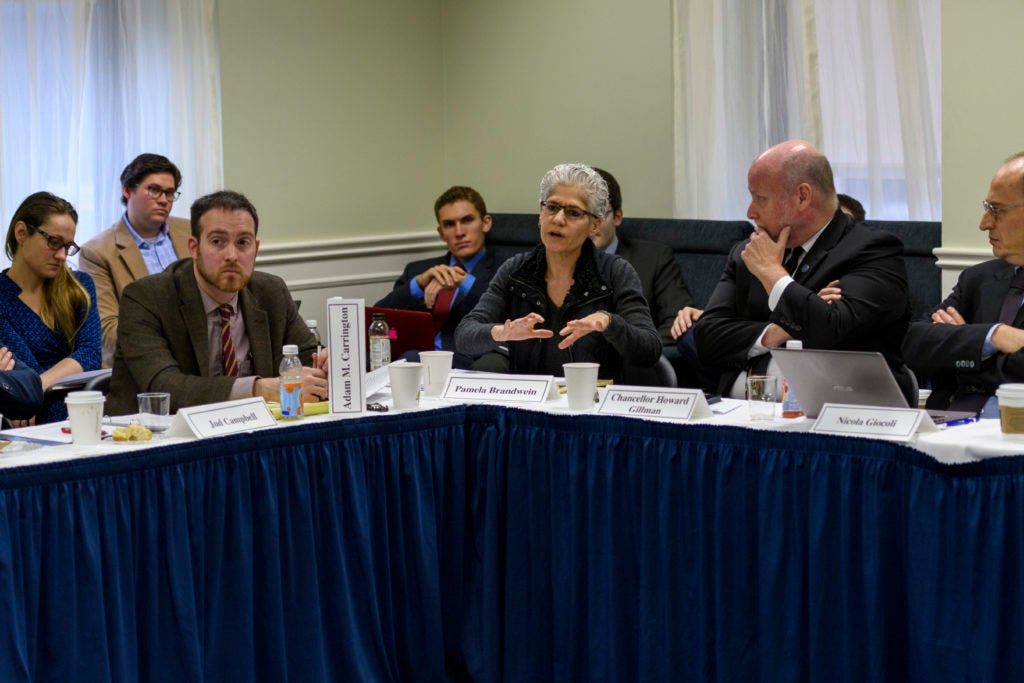Ten Year Anniversary Gala: October 14, 2022
On Friday, October 14th the Georgetown Center for the Constitution hosted our Second Annual Gala at the National Archives. The evening featured the Thomas M. Cooley Judicial Lecture, co-sponsored by the Federalist Society, with Judge Don Willett of the Court of Appeals for the Fifth Circuit. The Center awarded the 2022 Thomas M. Cooley Book Prize of $50,000 to Professor Michael McConnell of Stanford University for his book, “The President Who Would Not Be King: Executive Power under the Constitution.”
Towards Nondelegation Doctrines: October 13, 2022
On Thursday, October 13, 2022 the Center co-hosted “Towards Nondelegation Doctrines” with the Project on Constitutional Originalism and the Catholic Intellectual Tradition. The event featured a panel discussion with:
- Chad Squitieri, Assistant Professor of Law, The Catholic University of America Columbus School of Law
- Christine Chabot, Distinguished Professor in Residence, Loyola University Chicago School of Law
- The Honorable Trevor McFadden, United States District Court for the District of Columbia
A reception followed.
Eighth Annual Salmon P. Chase Distinguished Lecture
On November 17th, 2021 Dean William M. Treanor delivered the Eighth Annual Salmon P. Chase Distinguished Lecture commemorating the Constitutional Contributions of Gouverneur Morris. The Case of the Dishonest Scrivener: Gouverneur Morris and the Creation of the Federalist Constitution.
-
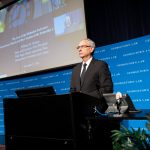
-
Randy Barnett
-
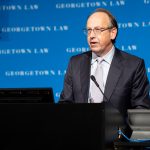
-
Paul Clement
-
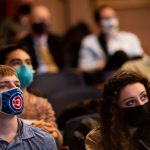
-
Audience
-
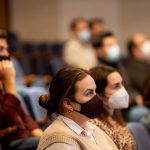
-
Audience
-
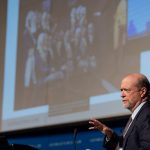
-
Dean William M. Treanor
-
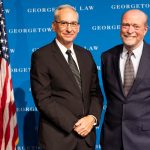
-
Professor Barnett and Dean Treanor
Eighth Annual Salmon P. Chase Faculty Colloquium
On Friday December 3rd we hosted the Eighth Annual Salmon P. Chase Faculty Colloquium. The newest cohort of Bradley Foundation fellows attended the colloquium.
2021 Thomas M. Cooley Symposium
On Friday, April 9th 2021, we hosted the 2021 Thomas M. Cooley Symposium discussing Professor Sean Wilentz’s book, No Property in Man: Slavery and Antislavery at the Nation’s Founding (Harvard University Press, 2018). The virtual conference featured robust discussion by over 20 law professors on the antislavery forces at the Constitutional Convention and throughout the 19th Century. We will award the Book Prize to Professor Wilentz this September at the National Archives.
Sixth Annual Salmon P. Chase Distinguished Lecture & Faculty Colloquium
On December 5th and 6th, 2019 we hosted the Sixth Annual Salmon P. Chase Distinguished Lecture & Faculty Colloquium commemorating the 200th Anniversary of McCulloch v. Maryland. The distinguished lecturer was Sanford Levinson of the University of Texas at Austin School of Law who gave a talk at the United States Supreme Court. In attendance to the lecture were members of the newest cohort of Student Fellows from the Georgetown University Law Center.
On December 6th, scholars came together to further discuss McCulloch v. Maryland in an all-day academic colloquium. The colloquium consisted of five sessions discussing papers by the following authors:
- Alison LaCroix (Chicago)
- Eric Lomazoff (Villanova)
- Farah Peterson (Virginia)
- David Schwartz (Wisconsin)
- Kevin Walsh (Richmond)
We would like to give special thanks to the Supreme Court Historical Society for co-sponsoring this event.
Inaugural Thomas M. Cooley Judicial Lecture
On April 11, we hosted our inaugural Thomas M. Cooley Judicial Lecture with Judge Joan Larsen of the U.S. Court of Appeals for the Sixth Circuit.Larsen’s lecture, “Respecting Local Control: State Law in the Federal System,” encouraged lawyers and judges to pay closer attention to state constitutional law, recounting her own experience as a justice on the Michigan Supreme Court and harkening back to Cooley’s advocacy for local control.
“State courts are too often treated in law schools and in elite legal circles as if they were the little siblings of their more sophisticated federal brethren,” she said. “But there can be no denying, even today, [that] the work of state courts matters.”
Expert criminal defense lawyer Jerome Buting talked to the Georgetown Law community in conversation with Professor Randy Barnett on Wednesday, February 27th. Buting shared some insight on new developments in Steven Avery’s case (featured in Netflix’s acclaimed series “Making a Murderer”), his path to becoming a criminal lawyer, criminal justice reform, and other topics.
The Center commemorated the 150th anniversary of the publication of Thomas Cooley’s Treatise on the Constitutional Limitations which Rest Upon the Legislative Power of the States of the American Union (1868) during its Fifth Annual Chase Faculty Colloquium at Georgetown Law on Saturday, December 1, 2018.
The colloquium consisted of four sessions discussing papers about substantive and interpretive issues raised by Constitutional Limitations by the following scholars:
- Joseph Postell (Colorado) on the “reasonable regulation” of liberty from the founding to the 14th Amendment
- Tara Helfman (Syracuse) on “Laissez-Faire constitutionalism”
- Greg Klass (Georgetown) on the “interpretation-construction distinction” in private law
- Larry Solum (Georgetown) on originalism and and the “interpretation-construction distinction” in public law
Featured News
November 14, 2018
Might conventional naming of clauses of the Constitution—Due Process Clause, Birthright Citizenship Clause, Free Speech Clause—condition how an individual perceives what the text is designed to do? In his forthcoming book, Framing the Constitution: The Impact of Labels on Constitutional Interpretation (Cambridge University Press, 2020), the Center’s Visiting Scholar Donald Kochan applies interdisciplinary social science research to constitutional labels.
July 31, 2020
The Georgetown Center for the Constitution announced it will award its fourth annual Thomas Cooley Book Prize of $50,000 to Professor Sean Wilentz of Princeton University for his book, No Property in Man: Slavery and Antislavery at the Nation’s Founding (Harvard University Press, 2018).
May 3, 2018
When he first began his academic teaching career, one of Professor Lee Strang’s (Toledo College of Law) first pieces of legal scholarship was an article on the original public meaning of the word “religion” in the Constitution. But while legal scholarship on religion has not necessarily seen an uptick, originalism definitely has, and Professor Strang’s forthcoming book: Originalism’s Promise and Limits: The Law As Coordination Account of Originalism will have something to do with that. Two years ago, Professor Strang began his term as a Visiting Scholar for the Georgetown Center for the Constitution, during which he completed the initial draft.







